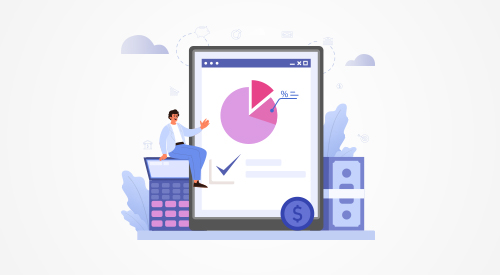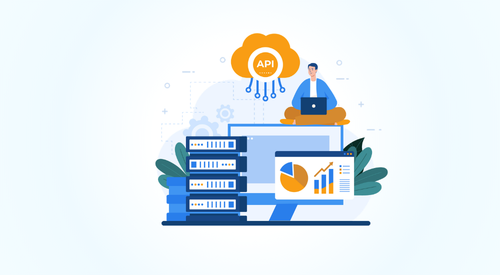

Predictive analytics is vital for Singapore’s retail industry, empowering businesses to anticipate trends and meet demand effectively. It provides accurate demand forecasting, enables personalized shopping experiences, identifies emerging trends, optimizes pricing strategies, and streamlines supply chain management. Here we explore how predictive analytics in the retail sector for Singapore is transforming retail, emphasizing the benefits it brings to businesses. Retailers will learn how to make data-driven decisions, enhance customer experiences, and gain a competitive edge in Singapore’s dynamic market.
Anticipate, Optimize, Succeed: Leverage The Power of Predictive Analytics
Predictive analytics, a branch of advanced analytics, uses historical data, machine learning algorithms, and statistical models to make predictions about future events and behaviors. For the retail industry in Singapore, where consumer preferences and market trends evolve rapidly, the ability to anticipate what customers want and respond proactively is critical to success.
The Growing Importance of Data in the Retail Industry
In the digital age, the retail industry has witnessed an unprecedented explosion of data. This exponential growth of data has transformed the way retailers operate, making it a valuable asset for businesses seeking to thrive in the competitive landscape. The abundance of data has opened up new possibilities, allowing retailers to gain deeper insights into consumer behavior, make informed decisions, and deliver personalized experiences that resonate with their customers. Advancements in technology, the proliferation of e-commerce, and the widespread use of smartphones have all contributed to the exponential growth of data in the retail sector. Every customer interaction, purchase, online click, and social media post generates valuable data points, creating a vast and diverse pool of information. As such, data has become the lifeblood of retail businesses, providing a wealth of information that enables retailers to understand their customers better, identify emerging trends, and optimize their operations. With the right data analytics tools and strategies, retailers can turn raw data into actionable insights, gaining a competitive edge in a market driven by consumer preferences.
Predictive Analytics in the Retail Sector for Singapore
Predictive analytics is a powerful tool that uses historical data, machine learning algorithms, and statistical models to make data-driven predictions. By analyzing past data and patterns, Singapore retailers can gain valuable insights to make informed decisions, anticipate trends, and meet customer demands effectively.
The Collaborative Process of Predictive Analytics
Here is how retailers can transform their data into actionable insights that can radically propel their businesses into the right sales postures, with predictive analytics.
- Historical Data Collection: Retailers gather large amounts of historical data related to sales, customer interactions, demographics, marketing efforts, and other relevant factors. This data serves as the foundation for predictive analytics.
- Data Preprocessing: Before applying predictive analytics, the collected data is preprocessed, which involves cleaning, transforming, and structuring it to ensure accuracy and consistency.
- Machine Learning Algorithms: Machine learning algorithms play a crucial role in predictive analytics. These algorithms automatically identify patterns and relationships within the data, enabling the system to learn from historical information.
- Statistical Models: Predictive models are developed based on the identified patterns and relationships. These models use mathematical and statistical techniques to understand correlations and predict future outcomes.
- Making Predictions: Once the models are built and trained, they are used to make predictions about various aspects of retail, such as future sales, customer preferences, inventory levels, and demand patterns.
- Continuous Improvement: Predictive analytics is an iterative process. As new data becomes available, the models are continuously updated and refined to improve the accuracy of predictions.
Leveraging Predictive Analytics
In Singapore’s competitive retail market, accurate demand forecasting is crucial for staying ahead. Predictive analytics in the retail sector plays a important role here by leveraging historical sales data, customer behavior patterns, and other information to build sophisticated forecasting models. Retailers can integrate data from various sources, utilize machine learning algorithms, perform seasonal and trend analysis, segment demand, and monitor real-time changes to make data-driven decisions and gain a competitive edge.
Efficient inventory management is vital for retailers in Singapore, balancing inventory levels to meet customer demand without excessive costs or stock outs. Predictive analytics optimizes inventory management by adjusting reorder points, utilizing seasonal analysis, adopting just-in-time inventory approaches, and optimizing the supply chain. This enhances customer satisfaction, loyalty, and financial stability for retailers in the dynamic market.
Additionally, optimizing pricing strategies is a complex challenge in Singapore’s retail landscape. Predictive analytics helps retailers overcome this challenge by analyzing historical sales data, monitoring competitor pricing, determining price elasticity, implementing dynamic pricing, and enabling personalized pricing. By leveraging predictive analytics, retailers can set competitive and profitable prices while catering to price-sensitive customers and sustaining profitability in the market.
GCP & Predictive Analytics Solutions
Google Cloud Platform (GCP) offers powerful tools and services that enable retailers to effectively leverage predictive analytics in the retail sector for Singapore. Predictive analytics, combined with GCP’s scalable and flexible infrastructure, can help retailers gain valuable insights from their data, anticipate customer behavior, optimize operations, and drive business growth.
- Data Management and Integration: GCP provides robust data management and integration capabilities, allowing retailers to collect, store, and manage vast amounts of data from various sources, including sales transactions, customer interactions, social media, and more. GCP’s BigQuery and Cloud Storage enable seamless data integration and preprocessing, laying the foundation for effective predictive analytics.
- Machine Learning and AI: GCP offers a wide range of pre-built machine learning models and tools through its AI Platform, allowing retailers to implement predictive analytics without the need for extensive machine learning expertise. These tools empower retailers to develop models for demand forecasting, customer segmentation, personalized recommendations, and fraud detection, among other applications.
- Real-time Insights: GCP’s data processing capabilities, such as Dataflow and Pub/Sub, enable real-time data analysis and streaming analytics. This allows retailers to respond quickly to changing market trends and customer preferences, providing an edge in the highly dynamic retail sector.
- Predictive Inventory Management: With GCP and predictive analytics, retailers can optimize inventory levels based on demand forecasts, historical sales data, and market trends. This ensures efficient inventory management, reducing carrying costs and minimizing stockouts, while meeting customer demand effectively.
- Personalized Customer Experiences: GCP’s machine learning capabilities enable retailers to create personalized shopping experiences. By analyzing customer behavior data and purchase history, retailers can offer targeted product recommendations, personalized marketing campaigns, and tailored promotions, enhancing customer satisfaction and loyalty.
- Pricing Optimization: GCP’s data analytics tools, coupled with predictive analytics, help retailers analyze competitor pricing, historical sales data, and market demand to optimize pricing strategies. Retailers can adjust prices in real-time to remain competitive while maximizing revenue and profitability.
- Fraud Detection and Prevention: GCP’s machine learning models can be employed to detect fraudulent activities and prevent potential risks, safeguarding retailers and customers from financial losses.
GCP’s robust infrastructure, combined with the capabilities of predictive analytics, presents a compelling opportunity for retailers in the retail sector. By leveraging GCP’s data management, machine learning, and real-time analytics capabilities, retailers can make data-driven decisions, enhance customer experiences, optimize inventory management, and achieve a competitive advantage in the ever-evolving retail landscape. Get in touch with us to know how we are helping retailers and manufacturers with the latest in cloud technology for transformative data solutions.











